Glasgow's name will reverberate into the future
- Published
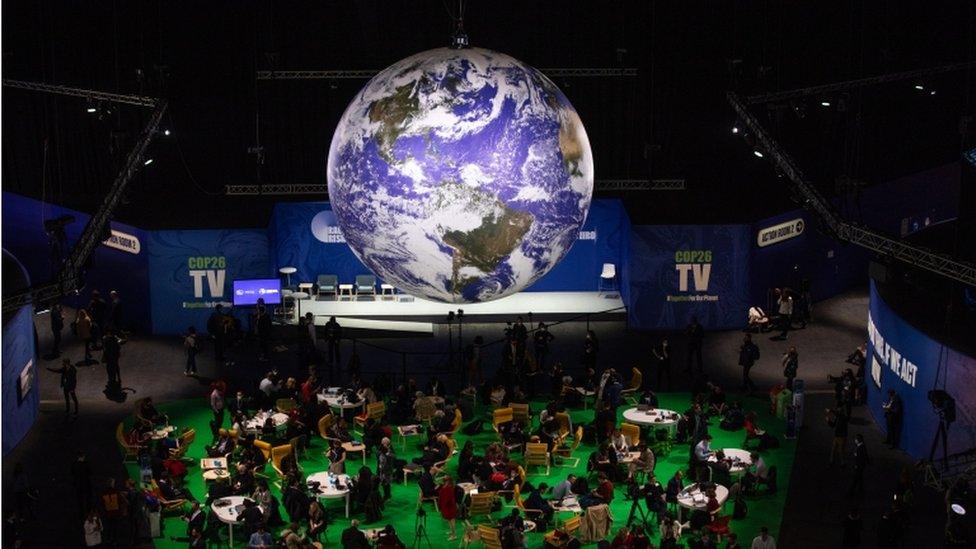
Having belched out harmful quantities of carbon in its industrial past, Glasgow now has a global climate pact to its name that will reverberate into the future.
The deal struck in Scotland's largest city will not, in itself, save the world from the worst effects of warming but it may just sustain that possibility.
COP26 President, Alok Sharma said it kept alive, albeit with a "weak pulse", the target of limiting global temperature increases to 1.5 degrees Celsius.
That's the level above which scientists believe the consequences of climate change will be most dangerous, especially for low-lying island states.
To achieve 1.5 degrees, the Glasgow climate pact is counting on governments around the world making big new carbon-cutting promises next year and keeping all their existing commitments.
The deal includes, for the first time, an acknowledgement that coal is part of the problem although it leaves lots of wriggle room for countries that want to keep burning it.
As COP26 president, 'No drama Sharma' fought back tears when India and China moved at the last minute to water down language on phasing out coal.
That agreement between almost 200 countries was still reached is a significant achievement for him.
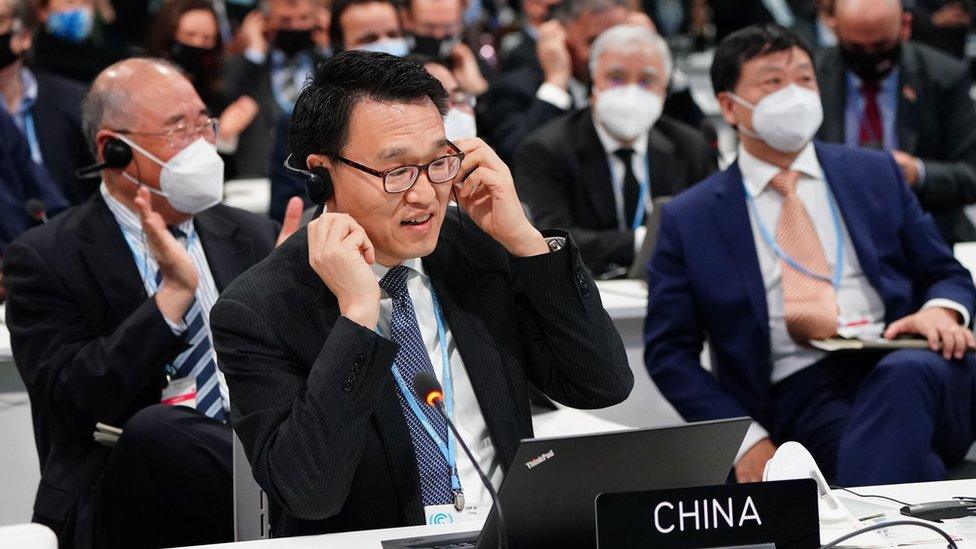
India and China moved at the last minute to water down language on phasing out coal
He has impressed, among others, Scotland's first minister, Nicola Sturgeon who paid tribute to him and his negotiating team for their "hard work and commitment".
She was less generous about Boris Johnson, suggesting that "history may judge" him for not doing more himself to secure the best possible outcome.
Downing Street news releases suggest the prime minister continued to work on several world leaders by phone even if he only spent a few days in Glasgow.
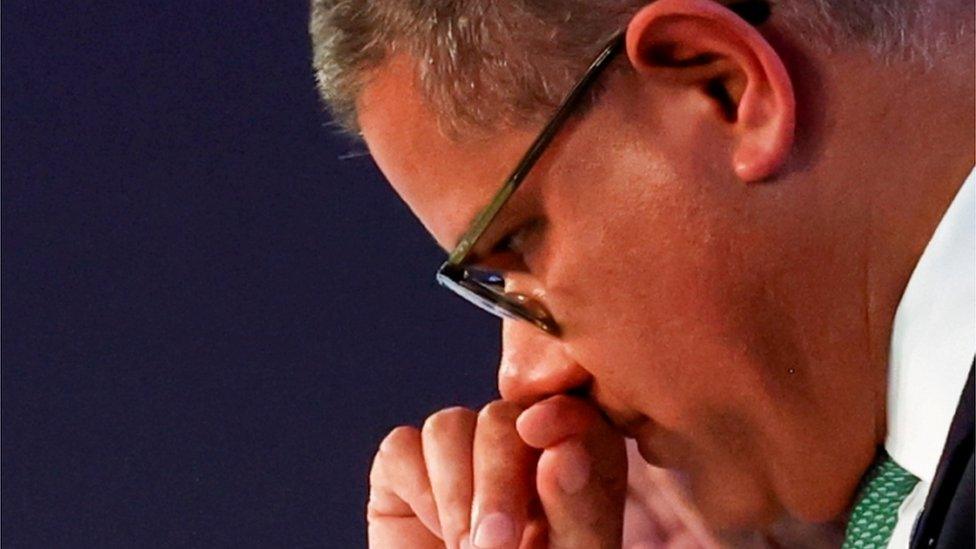
COP26 President Alok Sharma reacts during the UN Climate Change Conference in Glasgow
By contrast, Ms Sturgeon was a constant presence at COP26 even though the devolved Scottish government had no formal role in the negotiations.
The conference has been her primary focus for the past fortnight, with two Covid statements missed and a Holyrood question time delegated to her deputy, John Swinney.
Scottish Conservative leader Douglas Ross does not criticise her directly for that but wonders what "tangible outcomes" have been achieved from such a considerable time commitment.
The same question is often asked when leaders travel abroad and it can be difficult to quantify the return on promoting Scotland and trying to build good relations internationally.
Overseas trips were put on hold during the pandemic but the first minister has now had two weeks to make up for two years of lost diplomacy with the whole world coming to Glasgow.
Nicola Sturgeon told the BBC that COP26 had been a positive showcase for Glasgow and Scotland and that she had "spoken to lots of investors who are now looking to invest in green technology here".
That, at least, could develop into a tangible outcome.
The benefit question probably does not arise if you happen to work in the marketing department at AG Barr, which has enjoyed invaluable publicity for Irn Bru.
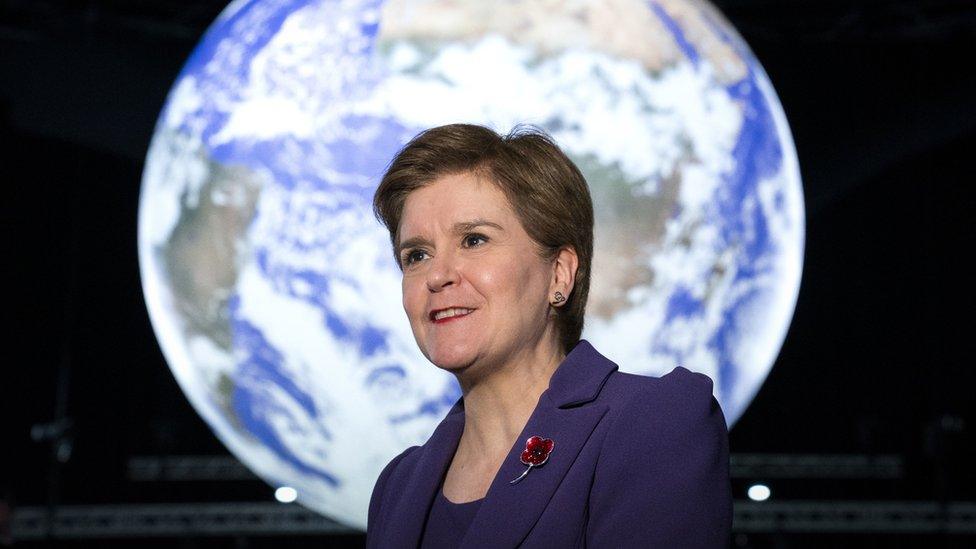
Nicola Sturgeon was a constant presence at COP26
When the first minister introduced US congresswoman, Alexandria Ocasio-Cortez to Scotland's other national drink, she endorsed it to the millions who follow her on social media.
Ms Sturgeon has rubbed shoulders with a galaxy of political stars during COP including the UN Secretary General Antonio Guterres, US house speaker Nancy Pelosi and climate activists Greta Thunberg and Vanessa Nakate.
There was even a little face time with US President Joe Biden and his climate envoy John Kerry - courtesy and recognition from the White House, that was unthinkable during the Trump era.
Scotland's international relations are specifically reserved to the UK government and parliament but successive devolved administrations have been expanding their activities in this area.
As well as doing lots of talking during COP, the Scottish government has also taken action by being among the first "international actors" to pay up for the "loss and damage" caused by climate change in the developing world.
It has given £2 million to a fund to compensate poorer countries and in doing so has encouraged philanthropists and the government of Wallonia to contribute a further £3m.
These are small but symbolic contributions for which the UN has expressed appreciation. The head of Greenpeace International, Jennifer Morgan said it was an example for the UK and other countries to follow.
Big push

Congresswoman Alexandria Ocasio-Cortez appealed on social media for a taste of Irn Bru
Overall, WWF Scotland's Lang Banks thinks Scotland has played a "positive role" at COP26 but called for "stronger action, more quickly" on carbon reduction because domestic targets have been missed over the past three years.
Catching up will require a big push to decarbonise homes, transport and major industrial sites like the Grangemouth oil refinery and petrochemicals plants run by Ineos.
In the latest episode of BBC Scotland's No Hot Air podcast, the chairman of Ineos Grangemouth, Andrew Gardner warns that both the Scottish and UK governments will struggle to meet their net zero ambitions without carbon capture and storage.
He said he was "shocked" that the Scottish carbon capture cluster, the Acorn project, had not been given priority by UK ministers who have said they are still "committed" to its development.
The Scottish government has drawn criticism from Friends of the Earth Scotland for not joining a new alliance of countries seeking to phase out oil and gas.
Friends of the Earth Scotland's Dr Richard Dixon said "Nicola Sturgeon is keen to use the language of climate justice and be photographed with Greta Thunberg but at some point her fine rhetoric has to translate into a commitment to stopping the oil and gas production that is driving the climate crisis".
The first minister, who has already ditched a policy of extracting maximum economic value from the North Sea, said it was "highly likely" her administration would become an associate member of BOGA, the Beyond Oil and Gas Alliance, founded by Denmark and Costa Rica.
That again would be largely symbolic as oil and gas licences are issued by UK authorities who are currently considering giving approval to the controversial new Cambo field, west of Shetland.
The UK has not joined the alliance or set an end date for fossil fuel extraction. Oil and gas remains a major industry in Scotland, supporting around a hundred thousand jobs.
COP has brought an intense and necessary focus to all of these issues.
In bringing the event to Glasgow, the UK government has probably sought to demonstrate how the Union can benefit Scotland.
It has also given the leader of Scotland's independence movement, Nicola Sturgeon a massive international platform.
The first minister has used it, principally, to advocate the same carbon cutting agenda as the UK and and UN.
However, in committing cash to "loss and damage" she has also created a distinctively Scottish position that invites anyone so inclined to imagine what role an independent Scotland might play.
If that has irked the UK government it has not said so publicly. A statement issued mid-way through the conference said it was "grateful for the contributions of all the first ministers from across the UK".
Having said that, there has been some private frustration. As COP26 closed, the first minister issued her response almost a full hour before the UK government with one UK official grumbling to me about what he considered discourtesy.
These tensions are never far from the surface in Scottish politics and will probably become more apparent now that the COP is over. But with the planet in crisis, we can ill-afford a politics that returns entirely to business as usual.


- Published14 November 2021
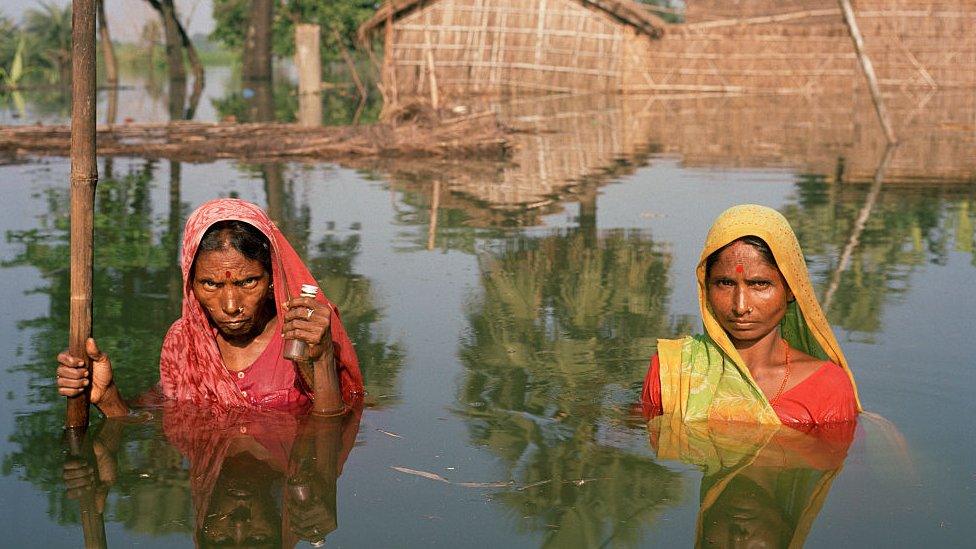
- Published14 November 2021
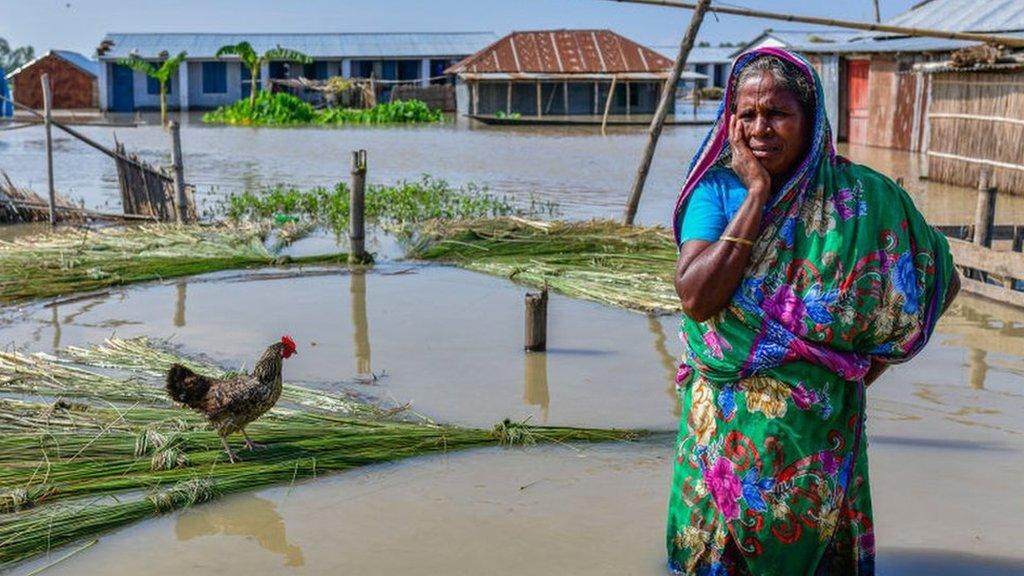
- Published10 November 2021
